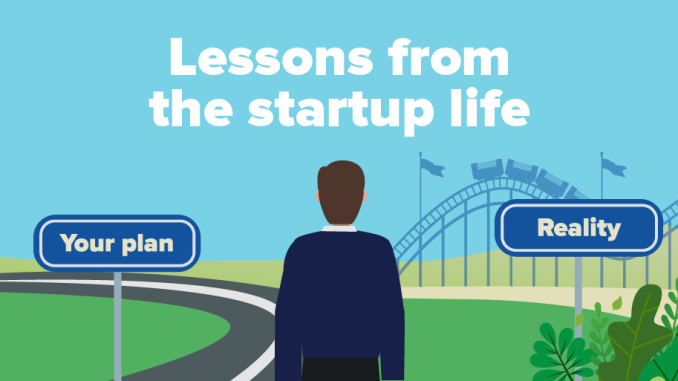
10 Lessons I Learned from Launching My First Startup
Launching a startup is one of the most challenging yet rewarding experiences an entrepreneur can undertake. It’s a journey filled with unexpected twists, countless hours of hard work, and moments of self-doubt. Through the highs and lows, there are valuable lessons to be learned that can shape the future success of your business. Here are 10 key lessons I learned from launching my first startup.
1. Start with a Clear Problem to Solve
A great idea isn’t enough to launch a successful business. What truly matters is solving a real problem that people care about. During the early stages, I often found myself getting excited about the novelty of my product, but I had to remind myself that it needed to address a specific pain point in the market. Starting with a clear, identifiable problem ensured that my product had a purpose and met the needs of my target audience.
2. The Importance of Market Research
Before I even began building my product, I underestimated the importance of in-depth market research. It’s not enough to assume that your idea will be successful because you believe in it. You must validate it with potential customers. I conducted surveys, interviews, and competitive analysis, which ultimately helped me refine my product and its messaging. Understanding your market gives you an edge and helps you avoid costly mistakes.
3. It’s Okay to Fail, but Fail Fast
The startup journey is filled with trial and error. Early on, I hesitated to pivot or scrap ideas I had worked hard on because I didn’t want to admit failure. However, I quickly realized that failure isn’t something to fear—it’s something to learn from. The key is to fail fast, gather feedback, and iterate quickly. The faster you can pivot or adjust, the quicker you can find the solution that works.
4. The Value of Networking
No entrepreneur is an island, and the importance of building relationships cannot be overstated. Networking with other entrepreneurs, mentors, investors, and potential customers helped me gain valuable insights that I wouldn’t have discovered on my own. Surrounding yourself with a strong network of support is crucial for both your personal growth and the growth of your business. Many of the opportunities that came my way were a direct result of networking.
5. Customer Feedback is Gold
In the early days of my startup, I was eager to develop my product and roll it out to the public, but I quickly learned the importance of listening to feedback. My customers became my greatest resource. Feedback—both positive and negative—helped me identify flaws in my offering and guided me on how to improve. As your business grows, remember to stay in touch with your customers and be responsive to their needs.
6. Cash Flow is King
No matter how great your idea is, without sufficient cash flow, your startup will struggle to survive. One of the biggest mistakes I made in the beginning was underestimating the importance of managing cash flow. I focused too much on growth and expansion before ensuring that I had the necessary capital to keep the business running. Learning how to budget, track expenses, and ensure timely invoicing was essential for sustaining operations in the early stages.
7. Team is Everything
At the heart of any successful startup is a great team. While I initially tried to do everything myself, I quickly realized that I needed help. Hiring the right people and building a strong team was critical to my business’s success. A cohesive team with shared goals, skills, and passion for the business can help execute the vision and overcome obstacles together. Don’t underestimate the power of having the right people on your side.
8. Marketing is More Than Just a Buzzword
Early on, I didn’t fully appreciate the importance of marketing. I thought a great product would sell itself, but I quickly learned that this wasn’t the case. You need to actively market your product and create visibility for your brand. Digital marketing, social media presence, content creation, and building partnerships are all essential to gaining traction. The earlier you start marketing, the better.
9. Time Management is Critical
As a startup founder, you wear many hats, and the demands on your time can be overwhelming. I often found myself juggling multiple responsibilities, from product development to customer service to administrative tasks. Learning how to manage time effectively was one of my most valuable lessons. Prioritizing tasks, delegating where possible, and creating a structured schedule helped me stay focused and prevent burnout.
10. Perseverance is the Key to Success
Perhaps the most important lesson I learned is the power of perseverance. Starting a business is a marathon, not a sprint. There will be days when everything seems to be going wrong, and giving up feels like the easiest option. But success is not defined by how quickly you achieve your goals—it’s about how long you’re willing to keep going. Staying committed to your vision, even when faced with challenges, is the key to making your startup a success.
Conclusion
Starting a business is a journey of continuous learning and growth. The lessons I learned from launching my first startup have shaped me into a better entrepreneur and have given me the tools to face future challenges with confidence. While each startup is unique, these lessons can serve as a valuable guide for anyone looking to take the leap and turn their idea into a thriving business. With the right mindset, dedication, and willingness to learn from mistakes, anyone can navigate the ups and downs of entrepreneurship and achieve success.